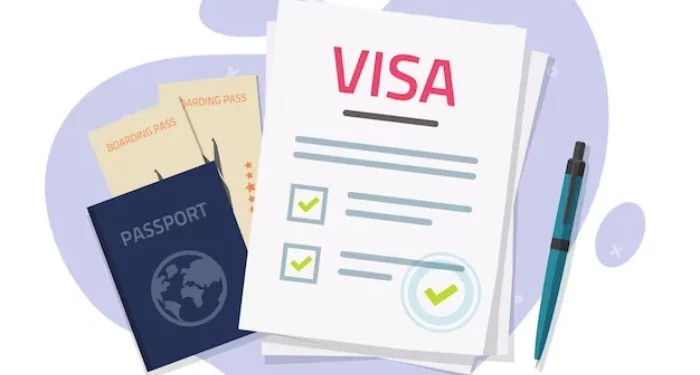The United States offers a wide variety of visa types to accommodate different purposes of travel, from tourism and business to work and study. One such visa type is the R – visa. Understanding the ins and outs of the R – visa is crucial for individuals who meet its specific requirements and wish to engage in certain activities in the US.
What Is US Visa Type R?
The R visa, specifically the R-1 nonimmigrant visa, is designed for foreign nationals who wish to enter the United States to perform temporary religious work. This visa is primarily intended for individuals affiliated with a recognized religious organization, allowing them to work in various religious capacities such as ministers, priests, missionaries, and religious instructors.
Eligibility Criteria for the R – Visa
Religious Worker Requirement
Qualifying Religious Organizations
To be eligible for the R – visa, an applicant must be coming to the United States to work for a bona fide religious organization. These organizations are typically recognized by the US government as having a religious purpose. This can include churches, synagogues, mosques, and other established religious institutions. For example, a Christian missionary coming to work for a well – known American church would be considered. The religious organization must have a legitimate religious activity in the US, such as conducting religious services, providing religious education, or engaging in charitable work with a religious foundation.
Job Function within the Organization
The applicant’s job role must be directly related to the religious activities of the organization. This could involve being a pastor, priest, rabbi, or imam, leading religious ceremonies and providing spiritual guidance. However, it’s not limited to these positions. It can also include religious educators who teach religious studies in a school affiliated with the religious organization, or workers involved in running religious retreats. For instance, a person who is responsible for organizing and leading a series of religious retreats for the members of a particular faith community would be eligible, as long as their work is integral to the religious functions of the organization.
Duration of Association with the Religion
Prior Involvement
Applicants are generally required to have been a member of the religious denomination they are associated with for at least two years immediately preceding the application for the R – visa. This shows a long – term commitment to the religion. For example, if a person wants to come to the US as a religious worker for a Buddhist temple, they should have been an active member of the Buddhist community for at least two years before applying. This period of prior involvement helps the US government ensure that the applicant has a genuine connection to the religious activities they will be undertaking in the US.
Continuity of Service
The two – year requirement also implies that the applicant’s service within the religious community should be continuous. Temporary breaks that are not due to a lack of commitment, such as a short – term medical leave, may be acceptable. But long – term breaks where the applicant has been inactive in the religious community may affect their eligibility. For instance, if an applicant took a year – long break from religious activities to pursue a non – religious career opportunity, they may not meet the continuity requirement for the R – visa.
Application Process for the R – Visa
Sponsorship by the Religious Organization
Submission of Forms
The religious organization in the US must act as the sponsor for the R – visa applicant. The first step in the process is for the organization to file a Form I – 129, Petition for a Nonimmigrant Worker, on behalf of the applicant. This form details the nature of the religious work the applicant will be doing, the terms of their employment, and the organization’s information. The organization must provide evidence of its religious status, such as incorporation documents, tax – exempt status certificates, and details of its religious activities.
Demonstrating Need for the Worker
The sponsoring religious organization also has to demonstrate that there is a need for the specific services of the applicant. They need to show that they have made efforts to find a US – based religious worker for the position but have been unable to do so. This could involve advertising the position within the US religious community, interviewing local candidates, and providing documentation of these efforts. For example, if the organization is looking for a specialized religious educator, they should show that they have advertised the position in relevant religious education journals and websites in the US, and that no suitable US – based candidates were available.
Applicant’s Documentation
Personal and Religious Background Information
The applicant must provide detailed personal information, including their full name, date of birth, nationality, and contact information. In addition, they need to submit information about their religious background. This includes details of their religious training, any religious degrees or certifications they have obtained, and a statement of their religious beliefs and how they relate to the work they will be doing in the US. For example, a Catholic priest applying for the R – visa would need to provide information about their seminary education, ordination details, and a statement on how they plan to carry out their priestly duties in the US.
Medical and Background Checks
Similar to other visa types, applicants for the R – visa are required to undergo medical examinations. This is to ensure that they do not have any communicable diseases that could pose a public health risk in the US. They also need to pass background checks, including criminal record checks. A clean criminal record is generally expected, although minor offenses may be considered on a case – by – case basis. For example, a minor traffic violation from several years ago may not necessarily disqualify an applicant, but a serious criminal conviction would likely have a negative impact on the visa application.
Duration and Limitations of the R – Visa
Initial Visa Duration
Length of Stay
The R – visa is initially valid for up to three years. This period allows the religious worker to carry out their duties in the US. For example, a missionary who has been sent to the US to establish a new religious outreach program can work for up to three years under the R – visa. During this time, they can build relationships with the local community, conduct religious services, and develop the outreach program.
Renewal Options
After the initial three – year period, the R – visa can be renewed. The renewal process is similar to the initial application process, with the sponsoring religious organization having to file another Form I – 129 on behalf of the applicant. The organization needs to demonstrate that the religious work is still ongoing and that the applicant is still needed. For example, if the missionary has made significant progress in the religious outreach program but still needs more time to complete certain aspects, the organization can apply for a renewal of the R – visa.
Work Limitations
Employer and Activity Restrictions
R – visa holders are restricted to working only for the sponsoring religious organization. They cannot take on additional jobs or work for other entities without first obtaining proper authorization. For example, a rabbi who has been sponsored by a synagogue in New York cannot work part – time at a different religious institution or in a non – religious job without permission. Their work activities must also remain within the scope of the religious work described in the visa application. If the rabbi’s original application was for leading religious services and providing religious education, they cannot start a new business venture or engage in activities not related to their religious work.
Dependent Status
Spouses and unmarried children under 21 of R – visa holders can accompany them to the US on R – 2 visas. However, R – 2 visa holders are generally not eligible to work in the US. They are mainly allowed to reside in the US and attend school. For example, if a religious worker brings their family to the US on R – 2 visas, their spouse and children cannot take on employment without applying for a separate work – authorization visa.
Conclusion
In conclusion, the US Visa Type R is a specialized visa designed for religious workers who wish to come to the United States to carry out religious activities for a recognized religious organization. The eligibility criteria, which include a connection to a qualifying religious organization, prior and continuous involvement in the religion, ensure that those applying for the visa have a genuine religious vocation. The application process, with sponsorship by the religious organization and submission of detailed documentation by the applicant, is set up to verify the authenticity of the religious work and the applicant’s suitability. The duration and limitations of the R – visa, such as the initial three – year validity, renewal options, and work restrictions, help regulate the activities of religious workers in the US. For individuals who meet the requirements, the R – visa offers an opportunity to contribute to the religious and cultural fabric of the United States. It’s important for both the religious organizations and the applicants to fully understand the requirements and processes associated with the R – visa to ensure a smooth and successful application.
Related topics:



















